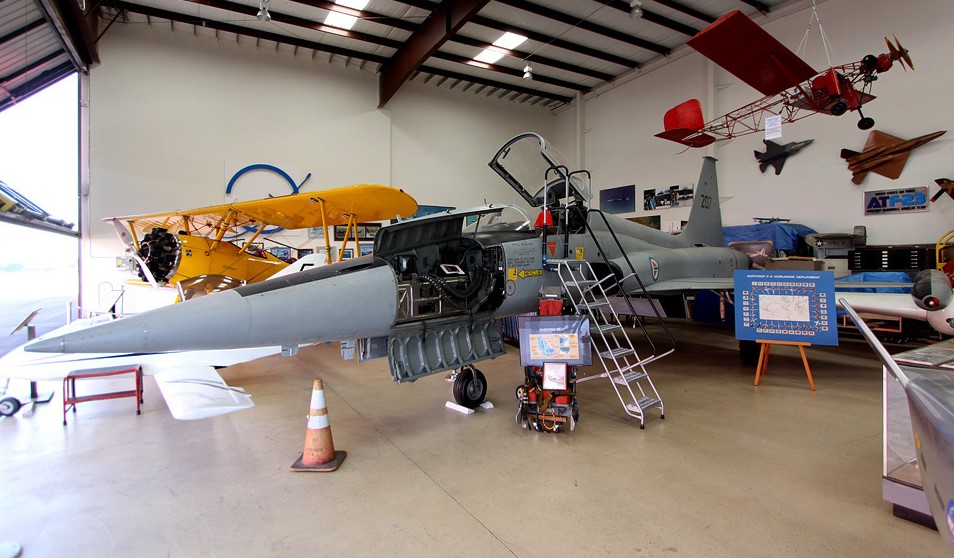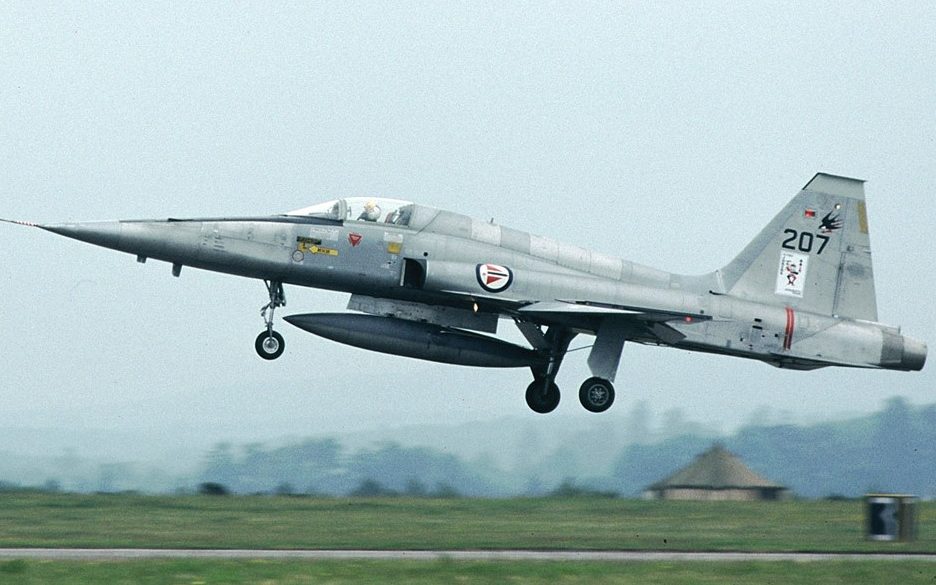The F-5A is a small, lightweight, low cost, easy-to-maintain supersonic fighter, well suited to the needs of friendly foreign countries who didn’t need, couldn’t afford, and couldn’t maintain the bigger, more complex fighters in the U.S. inventory. Development was begun by Northrop in the mid-1950’s but for a time took back seat to the development of the related T-38 trainer. In 1958 Northrop initiated building of a prototype of this small fighter, designated the N-156F. Two prototypes were built and flown, with a third partially constructed. The firm market for this airplane didn’t develop until May of 1962 when the U.S. Department of Defense selected the N-156F as the basis for the airplane to modernize the air forces of selected countries under the Military Assistance Program (MAP). The airplane was given the designation F-5A, with first flight of the prototype ( a modified N-156F) on July 31, 1963.
Countries receiving the F-5A under MAP included Iran, South Korea, the Philippines, Turkey, Greece, and the Republic of China. Norway, Spain, and Canada made direct purchases of the airplane. The airplane was also modified by the U.S. Air Force and evaluated in Vietnam with those airplanes dubbed “Skoshi Tigers”.
Following more than eight years of production, the last F-5A was delivered in June, 1972.
The airplane at the Western Museum of Flight is a Norwegian F-5A.

F-5A Specifications
| Manufacturer | Northrop Corporation, Aircraft Division, Hawthorne, CA |
| Wing Span | 25 feet, 3 inches |
| Overall Length | 46 feet, 11 inches |
| Overall Height | 13 feet, 2 inches |
| Wing Area | 170 sq. feet |
| Clean Takeoff Weight | 13,170 lbs. |
| Maximum Takeoff Weight | 19,860 lbs. |
| Speed (Maximum) | Mach 1.4 |
| Speed (Cruising) | Mach 0.84 |
| Range | 1,400 miles |
| Service Ceiling | 50,000 feet |
| Powerplants | (2) General Electric J85-13 Turbojets rated at 4,080 pounds thrust |
| Armament | (2) 20-mm Cannons, (2) Sidewinder IR Missiles |

